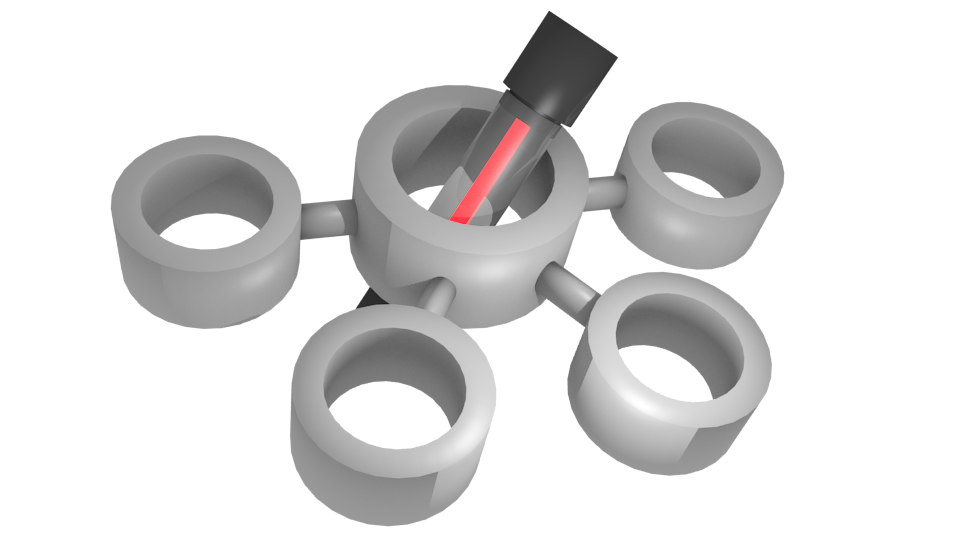


Intercepts all writes to specified directories and send them to apache kafka brokers. Quite suited for log centralization.
Packages for various distros can be installed from these repositories at openSUSE Build Service.
The following should install the new repositories then install fuse_kafka:
# curl -O \
https://raw.githubusercontent.com/llparse/fuse_kafka/master/setup.sh \
&& md5sum -c <(echo "123cd73857d94af4dfc64e03d29d9789 setup.sh") \
&& chmod +x setup.sh && ./setup.sh
A default configuration file is available in conf/fuse_kafka.properties. An explanation for each parameter is available in this file. The packages should install it in /etc/fuse_kafka.conf.
Here is a capture of a quickstart.
If you want to test fuse_kafka, using a clone of this repository.
On Debian and Ubuntu, you should install the following:
- librdkafka-dev
- librdkafka1
- libzookeeper-mt-dev
- libzookeeper-mt2
- libjansson-dev
- libjansson4
- python
First, build it:
$ ./build.py
On another terminal session, start zookeeper (this will download kafka):
$ ./build.py zookeeper_start
On another one, start kafka:
$ ./build.py kafka_start
The default configuration is conf/fuse_kafka.properties. An important piece of configuration is fuse_kafka_directories:
$ grep fuse_kafka_directories conf/fuse_kafka.properties -B2
# directories fuse_kafka will listen to (launch script will try to
# create them if they don't exist)
fuse_kafka_directories=["/tmp/fuse-kafka-test"]
Start fuse_kafka using the init script:
$ src/fuse_kafka.py start
If you're not running as root, you might have to make /etc/fuse.conf readable by your user (here to all users):
$ chmod a+r /etc/fuse.conf
And allow non-root user to specify the allow_other option, by adding a line with user_allow_other in /etc/fuse.conf.
If fuse_kafka is running, you should get the following output when running:
$ src/fuse_kafka.py status
listening on /tmp/fuse-kafka-test
fuse kafka is running
In yet another terminal, start a test consumer:
$ ./build.py kafka_consumer_start
Then start writing to a file under the overlay directory:
$ bash -c 'echo "foo"' > /tmp/fuse-kafka-test/bar
You should have an output from the consumer similar to this:
event:
group: users
uid: 1497
@tags:
- test
@fields:
hostname: test
@timestamp: 2014-10-03T09:07:04.000+0000
pid: 6485
gid: 604
command: bash -c echo "foo"
@message: foo
path: /tmp/fuse-kafka-test/bar
@version: 0.1.3
user: yazgoo
When you're done, you can stop fuse_kafka:
$ src/fuse_kafka.py stop
First, commment fuse_kafka_quota in conf/fuse_kafka.properties. Then, start fuse kafka.
$ src/fuse_kafka.py start
Let's create a segfaulting program:
$ cat first.c
int main(void)
{
*((int*)0) = 1;
}
$ gcc first.c
Then start a test consumer, displaying only the path and message_size-added fields
Launch the segfaulting program in fuse-kafka-test directory:
$ /path/to/a.out
A new core file should appear in fused directory.
Here is the consumer output:
$ SELECT="message_size-added path" ./build.py kafka_consumer_start
event:
message_size-added: 4096
path: /tmp/fuse-kafka-test/core
...
event:
message_size-added: 4096
path: /tmp/fuse-kafka-test/core
Here we see many messages.
Then, uncomment fuse_kafka_quota in conf/fuse_kafka.properties and launch the segfaulting program,
$ SELECT="message_size-added path" ./build.py kafka_consumer_start
event:
message_size-added: 64
path: /tmp/fuse-kafka-test/core
This time, we only receive the first write.
We use a logstash event, except the message and command are base64 encoded:
{"path": "/var/log/redis_6380.log", "pid": 1262, "uid": 0, "gid": 0,
"@message": "aGVsbG8gd29ybGQ=",
"@timestamp": "2014-09-11T14:19:09.000+0000","user": "root", "group":
"root",
"command": "L3Vzci9sb2NhbC9iaW4vcmVkaXMtc2VydmVyIC",
"@version": "0.1.2",
"@fields": {
"first_field": "first_value",
"second_field": "second_value" },
"@tags": ["mytag"]}
# installing prerequisites
$ sudo apt-get install librdkafka-dev libfuse-dev
# building
$ ./build.py
# testing
$ ./build.py dotest
# cleaning
$ ./build.py clean
# installing:
$ ./build.py install
The start script allows to specify a command to append when actually launching the binary, FUSE_KAFKA_PREFIX, which can be used to perform analyses while running (like memcheck):
FUSE_KAFKA_PREFIX="valgrind --leak-check=yes" ./src/fuse_kafka.py start
Fuse-kafka must never make your filesystem accesses hang. Although this should be considered as a major bug, this might happen since the soft is still young. You can install a script call in your crontab so that any FS hanging is umounted (the check will occur every minute). To do so on an installed instance:
# service fuse_kafka cleanup
To do so on a source based instance:
$ ./src/fuse_kafka.py cleanup
licensed under Apache v 2.0, see LICENSE file

